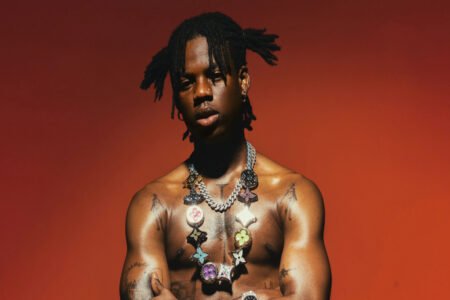Nigerian music piracy is not just a financial concern but a threat to the very foundation of the country’s vibrant music culture.
The vast range and distinctive sound of Nigeria’s thriving music scene are praised around the world. Underneath this artistic tapestry, though, is a problem that keeps coming up and poses a threat to the passion and hard work of artists: music piracy.
The State of Music Piracy in Nigeria
Unauthorized copies of music that is protected by copyright are sold, distributed, and reproduced illegally. In spite of efforts to stop it, piracy still poses a serious problem for Nigeria. Unauthorized streaming, bootleg CDs, and illegal downloads are now all too popular and cause record companies and artists to lose a lot of money.
Effects on Artists
Financial Losses: The financial harm that music piracy causes to artists may be the most noticeable and direct result of music piracy. The price of pirated music is much lower than the price of legal copies, depriving artists of their due compensation. Their ability to maintain their professions is hampered, and new talent is deterred from entering the field as a result.
Reduced Market Value: The value of original music is reduced as a result of piracy, which floods the market with cheap copies. Due to consumers’ habit of paying very little or nothing at all for music, it is difficult for musicians to demand reasonable pricing for their creations.
Limited Growth Prospects: Without enough money from their music, musicians may find it difficult to invest in honing their craft, advertising it, or getting access to top-notch studios for recording and production. This limits their ability to grow and makes it harder for them to compete on a global level.
Stifled Innovation and Creativity: songs piracy deters musicians from devoting time and money to producing new songs. Artists may be reluctant to create new content if their work is stolen or devalued, which would stifle the creativity and innovation necessary for the industry’s expansion.
Unfair Competition: Piracy also tilts the playing field against creatives who abide by copyright regulations. Legitimate artists struggle to build a strong brand and connect with true followers due to unfair competition from imitations of their work.
Eroded Fan Trust: As music piracy rises, fans may lose faith in musicians and the music business as a whole. This decline in trust may make it harder for fans to connect with artists and affect their willingness to give them money.
Solutions
Education and Awareness: It’s important to educate people about the negative consequences of music piracy. Consumers, business participants, and artists must comprehend how crucial it is to promote original material and uphold copyright regulations.
Stricter Enforcement: To increase efforts to stop piracy, law enforcement authorities and organizations that protect intellectual property rights must work together. Reinforcing the penalties for piracy will serve as a deterrence to those who engage in such activities.
Digital Distribution: Artists can have more control over their music and revenue streams by embracing digital distribution channels. Fans can lawfully get music through accessible and affordable streaming and download methods.
Collaborative Efforts: Artists, record labels, and industry associations should collaborate to establish anti-piracy initiatives and campaigns that promote ethical consumption of music.
Artists ought to benefit from their profession as they devote so much passion, effort, and ingenuity to it. The Nigerian music industry can collaboratively fight piracy and make sure that artists get the credit and payment they are due by increasing awareness, enforcing stronger regulations, embracing digital channels, and encouraging collaboration. Nigerian music has become a global phenomenon, and its business can only flourish and continue to generate the amazing tunes through such coordinated efforts.







